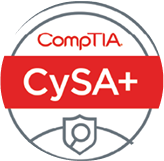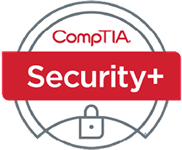Accelerate your future with elite, personalized high-quality private tutoring that sharpens your expertise and
unlocks exclusive opportunities. Stand out in the AI era — inspire, lead, and excel.
Mastery of Fundamentals

Launch Your Career

Complete the Core Curriculum courses and pass their assessments, and you'll have mastered the fundamentals. Participate in our Specialization Program, and you'll launch a career.





















Program developed for aspiring cybersecurity professionals.

Meet other cracked students who will push you to the next level. Learn best practices and grow fast. Hackathons create late night breakthroughs.

Talent density is the key to outsized results. Meet your peers. Plug in. Carve out a path in Africa's hacker scene.

Develop lifelong friendships with weekly events and group explorations

Offensive security is a proactive approach to cybersecurity that focuses on identifying and exploiting vulnerabilities in systems, networks, applications, and people just like a real attacker would, to help organizations strengthen their defenses.

Defensive security is the practice of protecting systems, networks, data, and users from cyberattacks. It focuses on detection, prevention, response, and recovery to stop attackers from succeeding or to minimize the damage if they do.
Intensive,mastery-based learning covering fundamental principles
Focus on building strong mental models by understanding concepts from "first principles". Progress will be gated by regular, rigorous assessments designed to ensure comprehensive mastery of each topic before students advance to the next.
Deepen learning in either Offensive or Defensive Security
Curriculum within these tracks become highly focused and exceptionally rigorous, aiming to cultivate expert-level skills in the chosen domain. It positions students for advanced roles, higher salaries, and targeted certifications (e.g OSCP for offensive security, Comptia Security+, CEH, CISSP for governance)
Applying advanced skills acquired during specialization phase to solve real-world business problems
A mandatory 3-month, high-quality internship provides students with critical industry immersion. These placements will be with carefully selected partner companies in Africa, or through remote international opportunities.
Developing strategic thinking, leadership capabilities, engagement with cutting-edge research and a global professional network.
Eight-week on-site program running as a standalone experience post-internship. The hackhouse will include people interested in diverse subfields of offensive and defensive security, so you'll learn a lot and make surprising connections.



 2 Hours Minimum Instructor-Led Session
2 Hours Minimum Instructor-Led Session 20 hours done in 1 calendar month
20 hours done in 1 calendar month One-on-One expert lecturer
One-on-One expert lecturer We fit into your schedule
We fit into your scheduleGet a discounted rate by paying for the course in one lump
sum upon registration. Includes 9 months Core Curriculum and 3 months Specialization.
Spread the cost of the course into easy, predictable Quarterly / Semi-annually payments Plan.
Spread the cost of the course into easy, predictable Monthly payments Plan.
1. Courses are available anytime. This means you can start when you want to!
2. We fit into your schedule - this means once you register, your personal lecturer contacts you within ±2 working days and arranges times and dates that fit into your schedule! (Minimum session is 2 hours and 20 hours must be done in 1 calendar month).
3. You get assigned your own personal lecturer – they only teach you at that given time.
4. Online training is not like the norm. You get assigned your own One-on-One Expert who can not only interact with you, but your code, software and PC! No videos or pre-recordings!
5. We are practical: You build practical examples directly with your personal lecturer and on your own.
6. Implementation of mastery-based learning. No other program does it the way we do it, and we believe it is the most effective training program for launching long-term engineering-centric careers. It's possible to get a job faster and without learning to mastery, but it's our belief that in the long run, this way of learning yields superior results and makes all the difference when considered in the span of one's career..
7. You don't lose your hours like conventional training institutions. This means you will always have your hours and can cancel a lesson or postpone it.
8. We eat, sleep, and breathe offensive & defensive cybersecurity.
9. We assist you in getting an industry job.
• Ebooks and/or Study Guide
• Professional notes
• IDE
• Interactive software
*Dependent on course and availability of resources
• Have basic IT/computer literacy skills
• Familiarity with command-line interfaces and scripting
• Have basic cybersecurity knowledge e.g Introduction to Cybersecurity
• Proficiency in English – both spoken and written.
• Must have a computer or laptop with the following specs (core i5 – i7, 8GB RAM, 500GB memory).
• Access to internet